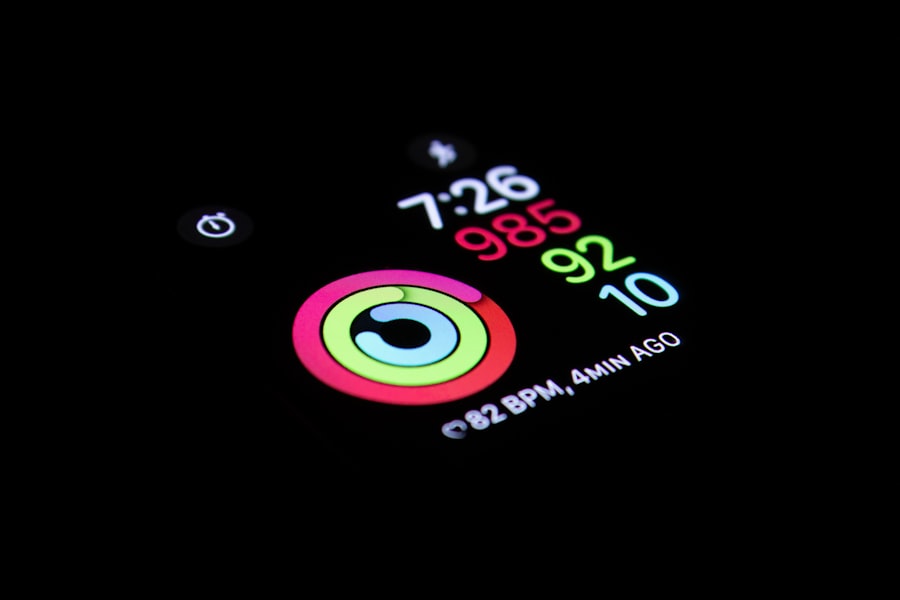A loud heartbeat can be an alarming experience, often leaving you feeling anxious or concerned about your health. The sensation of your heart pounding in your chest can be disconcerting, especially if it occurs unexpectedly or frequently. Understanding the reasons behind a loud heartbeat is essential for managing your health and alleviating any fears you may have.
This article will explore various factors that can contribute to a loud heartbeat, ranging from normal physiological responses to more serious medical conditions. When you experience a loud heartbeat, it’s important to remember that your body is responding to various stimuli. While it can be a sign of an underlying issue, it is often a natural response to certain situations or lifestyle choices.
By gaining insight into the causes of a loud heartbeat, you can better navigate your health and make informed decisions about when to seek medical advice.
Key Takeaways
- Loud heartbeat can be caused by various factors such as stress, physical exertion, caffeine, medications, and underlying health conditions.
- Normal heartbeat sounds are typically described as a “lub-dub” and can vary in intensity and rhythm depending on the individual’s physical activity and emotional state.
- Stress and anxiety can lead to a louder and faster heartbeat due to the release of adrenaline, which can cause the heart to work harder.
- Physical exertion, such as exercise or strenuous activity, can also result in a louder heartbeat as the body requires more oxygen and blood flow.
- Caffeine and stimulants can increase heart rate and make the heartbeat sound louder, especially in individuals who are sensitive to these substances.
Normal Heartbeat Sounds
Your heart produces sounds that are typically rhythmic and steady, reflecting its normal functioning. A healthy heartbeat is usually described as a soft thump or a gentle whoosh, which you may not even notice unless you are paying close attention. However, there are times when your heartbeat may become more pronounced, and this can be perfectly normal.
Factors such as excitement, physical activity, or even changes in body position can lead to an increased awareness of your heartbeat. In many cases, a loud heartbeat is simply a result of heightened awareness or increased blood flow. For instance, when you engage in physical activity, your heart works harder to pump blood throughout your body, which can make the sounds more noticeable.
Similarly, emotional states such as happiness or fear can trigger an adrenaline rush, causing your heart to beat faster and louder. Understanding these normal variations can help you differentiate between benign occurrences and those that may warrant further investigation.
Stress and Anxiety

Stress and anxiety are common culprits behind a loud heartbeat. When you find yourself in a stressful situation, your body activates its fight-or-flight response, releasing hormones like adrenaline. This surge of adrenaline prepares your body to react quickly, increasing your heart rate and making your heartbeat more pronounced.
You may notice that during moments of high stress or anxiety, your heart feels like it’s racing or pounding in your chest. Recognizing the connection between stress and a loud heartbeat is crucial for managing your overall well-being. Practicing relaxation techniques such as deep breathing, meditation, or yoga can help mitigate the effects of stress on your body.
By incorporating these practices into your daily routine, you can create a sense of calm that may reduce the frequency and intensity of loud heartbeats associated with anxiety.
Physical Exertion
| Activity | Intensity | Duration |
|---|---|---|
| Running | High | 30 minutes |
| Swimming | Moderate | 45 minutes |
| Cycling | High | 1 hour |
| Walking | Low | 1.5 hours |
Engaging in physical exertion is another common reason for experiencing a loud heartbeat. Whether you’re running, lifting weights, or participating in any form of exercise, your heart must work harder to supply oxygen-rich blood to your muscles. As a result, you may notice that your heartbeat becomes louder and more forceful during and immediately after physical activity.
It’s important to understand that this response is entirely normal and indicates that your cardiovascular system is functioning as it should. However, if you find that your heart continues to pound loudly long after you’ve stopped exercising or if you experience discomfort during physical activity, it may be worth consulting with a healthcare professional. They can help determine whether there are any underlying issues that need to be addressed.
Caffeine and Stimulants
Caffeine and other stimulants can significantly impact your heart rate and contribute to a loud heartbeat. When you consume caffeinated beverages like coffee, tea, or energy drinks, the caffeine stimulates your central nervous system, leading to increased alertness and energy levels. However, this stimulation can also cause your heart to beat faster and more forcefully, making the sounds more noticeable.
If you find that your heartbeat becomes particularly loud after consuming caffeine, it may be beneficial to monitor your intake. Reducing the amount of caffeine you consume or switching to decaffeinated options can help alleviate the symptoms associated with a loud heartbeat. Additionally, being mindful of other stimulants in your diet—such as certain medications or supplements—can also play a role in managing this issue.
Medications and Supplements

Certain medications and supplements can have side effects that include an increased heart rate or a loud heartbeat. For instance, some over-the-counter cold medications contain stimulants that can elevate your heart rate. Similarly, certain prescription medications used to treat conditions like asthma or attention deficit hyperactivity disorder (ADHD) may also lead to noticeable changes in your heartbeat.
If you suspect that a medication or supplement is contributing to your loud heartbeat, it’s essential to discuss this with your healthcare provider. They can help you evaluate the potential side effects of your current regimen and determine whether adjustments are necessary. Never stop taking prescribed medications without consulting a professional first; they can guide you through any changes safely.
Heart Conditions
While many causes of a loud heartbeat are benign, it’s crucial to be aware that certain heart conditions can also lead to this symptom. Conditions such as arrhythmias—irregular heartbeats—can cause your heart to beat loudly or erratically. Other issues like cardiomyopathy or heart valve disorders may also manifest as noticeable changes in how your heart sounds.
If you experience additional symptoms alongside a loud heartbeat—such as chest pain, shortness of breath, dizziness, or fainting—it’s vital to seek medical attention promptly. These symptoms could indicate a more serious underlying condition that requires immediate evaluation and treatment. Being proactive about your heart health is essential for ensuring long-term well-being.
Thyroid Disorders
Thyroid disorders can also play a significant role in how loudly your heart beats. An overactive thyroid (hyperthyroidism) can lead to an increased heart rate and heightened awareness of your heartbeat. This condition causes the thyroid gland to produce excess hormones that accelerate various bodily functions, including heart rate.
If you suspect that thyroid issues may be contributing to your loud heartbeat, it’s important to consult with a healthcare professional for proper testing and diagnosis. They can evaluate your thyroid function through blood tests and recommend appropriate treatment options if necessary. Addressing thyroid disorders can lead to improvements not only in your heartbeat but also in overall energy levels and well-being.
Anemia
Anemia is another condition that can lead to noticeable changes in your heartbeat. When you have anemia, your body lacks sufficient healthy red blood cells to carry adequate oxygen to tissues and organs. As a result, your heart compensates by working harder to pump blood throughout the body, which can manifest as a loud or racing heartbeat.
If you suspect anemia might be affecting you—especially if you experience fatigue, weakness, or pale skin—consider seeking medical advice for evaluation and treatment options. Addressing anemia through dietary changes or supplements can help restore balance in your body and alleviate symptoms associated with a loud heartbeat.
Pregnancy
Pregnancy brings about numerous physiological changes in a woman’s body, including alterations in heart function. As the body adapts to support the growing fetus, blood volume increases significantly, leading to an elevated heart rate and potentially louder heartbeat sounds. Many women report feeling their hearts racing during pregnancy due to these changes.
While experiencing a loud heartbeat during pregnancy is often normal, it’s essential to communicate any concerns with your healthcare provider. They can monitor both maternal and fetal health throughout the pregnancy journey and provide guidance on managing any discomfort associated with changes in heart function.
Seeking Medical Attention
If you find yourself frequently experiencing a loud heartbeat accompanied by other concerning symptoms—such as chest pain, dizziness, or shortness of breath—it’s crucial to seek medical attention promptly. Your healthcare provider can conduct thorough evaluations to determine the underlying cause of these symptoms and recommend appropriate treatment options. Even if the loud heartbeat seems benign at first glance, it’s always better to err on the side of caution when it comes to matters of the heart.
By staying informed about potential causes and seeking professional guidance when necessary, you empower yourself to take control of your health and well-being effectively. In conclusion, while experiencing a loud heartbeat can be unsettling, understanding its various causes can help alleviate concerns and guide appropriate actions. From normal physiological responses related to stress or physical exertion to more serious conditions requiring medical attention, being aware of these factors allows you to navigate your health with confidence.
If you’ve ever wondered why your own heartbeat sounds so loud, you might find the article on Freaky Science insightful. The sensation of hearing your heartbeat can be attributed to various factors, including heightened awareness, stress, or even certain medical conditions. For a deeper understanding of this phenomenon, you can explore more in the related article on Freaky Science’s website. Check out this freakyscience.
com/sample-page/’>informative article to learn more about the science behind why your heartbeat might seem unusually loud.
WATCH THIS! 🧠 The Brain Hack That Makes You See Ghosts!
FAQs
What causes a loud heartbeat?
The most common causes of a loud heartbeat include anxiety, stress, caffeine consumption, physical exertion, and certain medical conditions such as high blood pressure, anemia, or thyroid disorders.
Is a loud heartbeat a cause for concern?
In most cases, a loud heartbeat is not a cause for concern and is simply a result of temporary factors such as stress or physical activity. However, if the loud heartbeat is accompanied by other symptoms such as chest pain, dizziness, or shortness of breath, it may indicate a more serious underlying condition and should be evaluated by a healthcare professional.
How can I reduce the loudness of my heartbeat?
To reduce the loudness of your heartbeat, you can try practicing relaxation techniques such as deep breathing, meditation, or yoga. Avoiding stimulants like caffeine and getting regular exercise can also help regulate your heartbeat and reduce its loudness.
When should I seek medical attention for a loud heartbeat?
If you experience a sudden onset of a loud heartbeat, especially if it is accompanied by other symptoms such as chest pain, dizziness, or fainting, it is important to seek medical attention immediately. Additionally, if you have a history of heart disease or other cardiovascular conditions, it is important to discuss any changes in your heartbeat with a healthcare professional.
